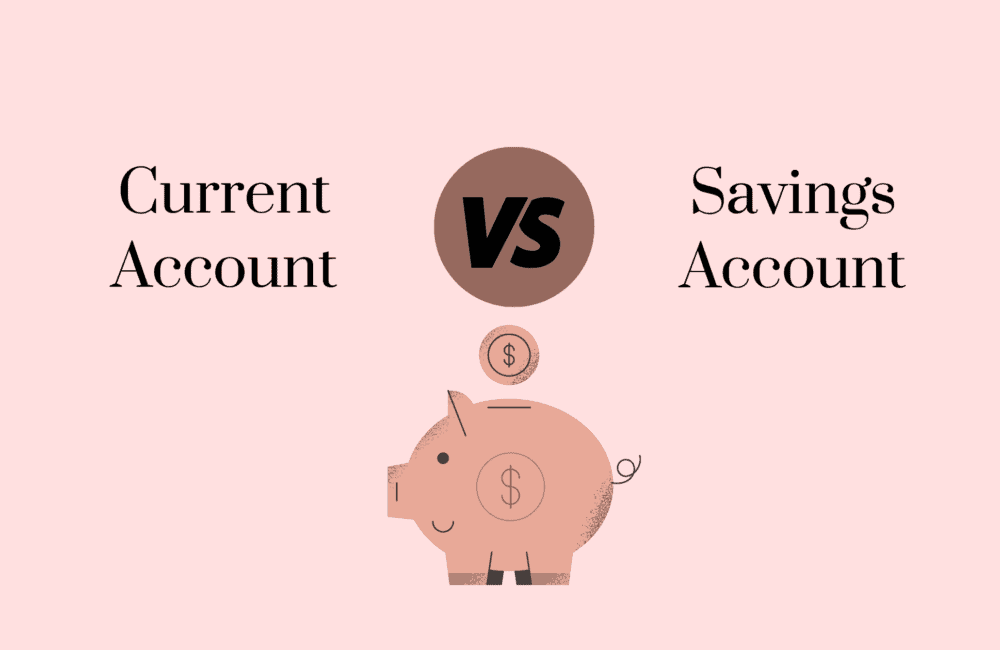Current Account Vs Savings Account – Overview
A bank account is also known as the financial account that is maintained by the financial institution that records the number of transactions that take place. In history, it is said that the bank account first came into existence in Mesopotamia around 1800 BC. In the olden days, people followed the barter system whereby they exchanged goods in return for goods. Suddenly, money came to life and people started exchanging goods for money. In modern times, people needed a place to safeguard their money and that gave birth to bank accounts.
What Is A Bank Account?
A bank account is an account where you can store all your savings in the form of money and easily withdraw them when you need them. Banks also provide you an extra sum of money for allowing them to store your savings. That extra sum of money is known as the savings interest. Depending on the rate of interest the bank will give you the interest amount on your savings. The bank account is divided into two distinct categories:
What Is Savings Account?
Opening a savings account with the bank allows you to store your extra money in the bank account and earn interest on the savings amount. Any of the citizens can open a savings account with the bank which is considered to be the safer option for most individuals.
What Is Current Account?
Opening a current account means you can actively carry out any form of transaction without notifying the bank. These types of accounts are usually opened by people who run businesses and need to carry out regular transactions.
Difference Between Savings Account And Current Account – Features
| Savings Account | Current Account |
| Fixed Interest | Quick Transactions |
| Minimum Saving Balance | Overdraft Facility |
| Suitable for Individuals | Suitable for Businesses |
| Transaction Limit | Multiple Transactions |
Savings Account Features
- Fixed Interest
Savings accounts are popular for paying you fixed interest amounts based on the rate that is prevailing in the market. If a particular bank has a savings rate of 4% on a quarterly basis, you will receive your interest amount every quarter at a 4% rate of return. Interest rates keep changing every quarter and are decided by the banks.
- Minimum Saving Balance
Every bank account requires you to maintain a minimum balance so that the account value does not diminish to zero. However, opening a savings account requires you to have a lower minimum savings balance amounting to Rs. 1,000 to Rs. 20,000 that may not be the case with a current account.
- Suitable for Individuals
If you are an individual who wants to save money for an emergency fund or any other purpose, a savings account may be the right choice for you. As an individual, you can easily store a smaller amount every month in your bank account and earn additional interest on it.
- Transaction Limit
If you are having a savings account then you also have certain limitations on the number of transactions that you can carry out during a particular period. Every bank may have a different rule but as per the standard rule if you have a savings account then you can draw a maximum of 30 cheques each year.
Recommended: How to Use An ATM Machine
Current Account Features
- Quick Transactions
The best thing about the current account is that it will process your transactions at a much faster pace. Opening a current account allows you to actively carry out any form of transaction without notifying the bank.
- Overdraft Facility
The reason why businesses prefer the current account is due to its overdraft facility. Overdraft facility ensures that a particular transaction is carried out even in the case of insufficient funds. The bank will charge you a small rate of interest for using the overdraft facility and adjust the amount once money is deposited.
- Suitable for Businesses
Individuals cannot open a current account because the facilities are purely meant for those who want to regularly carry out cash transactions. Businesses open a current account not only for multiple transactions at a faster pace but also to avail the additional benefits of the overdraft facility.
- Multiple Transactions
If you own a current account, you can easily carry out multiple transactions without any restrictions on the account. Current account holders are also given various benefits while making payments which makes it easier for them to carry out their transactions.
Recommended: Top 10 International Banks in India
Final Thoughts – Key Takeaway Points
If you are an individual who is looking to save money for future use or for emergency funds it is better to open a savings account. But if you are a young entrepreneur who wants to carry out daily business transactions then you should definitely open a current account where you can avail additional benefits.
Frequently Asked Questions
What Is A Savings Account?
It is an account for individuals and is usually created with the objective to save and spend money for everyday expenses.
What Is A Current Account?
It is an account for businesses with the objective to use it for business-based transactions.
How To Open A Savings Account Or A Current Account?
They will usually ask for a basic set of documents that is for KYC purposes. For current accounts, the bank might ask for additional business documents.
What Is The Minimum Balance Requirement For Savings Accounts?
It depends on the type of savings account and the bank. There are zero minimum balance accounts as well.
How To Close A Savings Account Or Current Account?
You will have to request it through the bank. Check your bank for more details.



